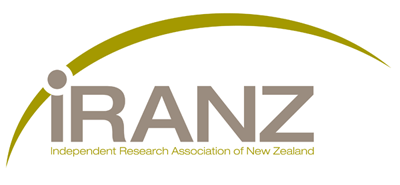Future pathways for the science system – an independent research response
The Government’s Te Ara Paerangi – Future Pathways Programme wants to create a modern, future-focussed research system for Aotearoa New Zealand that is adaptable for a rapidly changing future, resilient to changes, and connected; to itself, to industry, to public sector users of research, and internationally. In the call for submissions on their Green Paper, IRANZ offered the collective response of this country’s Independent Research Organisations (IROs) to how such a system could operate to achieve these aims.
Not being Government-owned, the IROs provide important targeted research and expertise in specific economic, environmental, and social areas not adequately covered by Crown Research Institutes and universities and are frequently part of “the best teams” required for important research programmes.
IROs support all sectors from primary processing, food safety, environment taiao ahuwhenua, housing, infrastructure, the economy kete aronui, health, medicine, and society hauora, rongoā me te rōpū iwi. IROs are located throughout the country, including regionally.
Ideally, IRANZ would like to see the Government’s Research, Science, and Innovation (RSI) strategies, policies, and investment portfolios take into consideration the entire research, science and innovation ecosystem, including IROs.
We support changes to the science investment system which create a strong and evolving science infrastructure, increase the formation of best teams and avoid wasteful bidding processes. We believe policies should be agnostic to research organisation ownership -whether it is by government, community, or industry.
Base funding including Strategic Investment in RSI capability and infrastructure should be available to all research organisations. IROs have unique strategic capabilities, such as the fire testing facilities at BRANZ, the wind tunnel and road-testing capabilities at WSP Laboratories, Aotearoa’s only licensed cell therapy manufacturing suite at the Malaghan Institute of Medical Research, and Bragato Research Institute’s research winery opened in February 2020, a world-class facility unmatched elsewhere in the southern hemisphere.
IRANZ Recommendations
Any changes to the science system need to go hand in hand with a review of overall investment levels, significant system change should be accompanied with a sustainable refresh and increase in funding levels.
IROs have strong links with the community, industries, and local, regional, and national government. Te Ara Paerangi – Future Pathways Programme restructuring needs to recognise and develop IRO strengths and be aware of the potential consequences for IROs of investment and ownership decisions it makes.
We believe the primary goal for Te Ara Paerangi should be building a world class research, science, and innovation infrastructure. The basis for setting the objectives should be the provision of research, science and innovation infrastructure including its environment, society, industries, agriculture, and economy. Greater sharing and managed access to infrastructure, including with industry, should be facilitated.
National Research Priorities should be broad based and inclusive, not exclusive. Covid-19 has demonstrated that the country’s science infrastructure can rapidly adapt to take on new challenges. Priorities should focus on requiring outcomes for Aotearoa New Zealand rather than research outputs for organisations. If an Independent Research Council is established a Te Tiriti approach needs to underlie it and the Council needs to represent industry and the community.
Ideally, Te Ara Paerangi would cover all RSI investment, not just that funded by the Ministry of Business, Innovation, and Employment (MBIE) programmes. It would also cover the Tertiary Education Commission (TEC) - especially the Performance-Based Research Fund (PBRF) -, HRC programmes, and research strategies and programmes for government departments, regional government, community, and industry groups.
We support the idea that the system should be open-minded and inclusive, incorporating values beyond traditional science and upholding the value of mātauranga Māori. The RSI system should truly honour Te Tiriti o Waitangi in form and function. Stronger statements and practices need to be introduced to ensure the prominence of mātauranga Māori. We demonstrate our commitment to mātauranga Māori through our Māori members and our Ngā Ara Mahi me Ngā Mahi Ngātahi (Career Paths and Partnerships) programme.
Government Science Policy has for a number of years targeted increased business expenditure on R&D. This is an area where IROs make a vital contribution, with their strong links to industry, businesses, and the community. Te Ara Paerangi could be building on this strength.
The current definitions of research excellence should be extended to cover the whole range of research dissemination opportunities. The current system distinguishes between excellence and impact and then subsequently focuses on narrow measures of excellence such as research publications in the initial selection of proposals. This works against applied research which will benefit the country in favour of research with reviewed publication metrics which are easily measurable.
Our workforce will be vital to the success of Aotearoa New Zealand’s RSI infrastructure. It is increasingly important that our universities provide Early Career Researchers with skills and experience targeted at the needs of all of our research organisations. Career movement and progression needs to be considered more broadly including researchers seamlessly transferring between academia and industry. Government investment in RSI should recognise the need for secure and challenging career paths for researchers.
Research investment funding must be equally available and agnostic to ownership. A suggested move from full cost funding to a mixture of base and marginal funding requires very careful consideration. It must not compromise collaborative research by the “Best Teams” and must be equally accessible across all RSI organisations.
Changes should have a focus on reducing the costs of engaging with the science system. There is well-established national and international research showing the significant cost of unsuccessful research processes such as unsupported proposals and unproductive engagement activities. Any changes to the system should have, as a core design principle, a reduction in the cost of doing business. This will enable a greater proportion of available time and money to be spent on developing and delivering research and outcomes.
Read the submission
IRANZ. (2022). Matapakinga IRANZ Te Ara Paerangi Pepa kākāriki: IRANZ discussion on Future Pathways Green Paper. 19pgs. Wellington: Author.
Date posted: 24 March 2022

